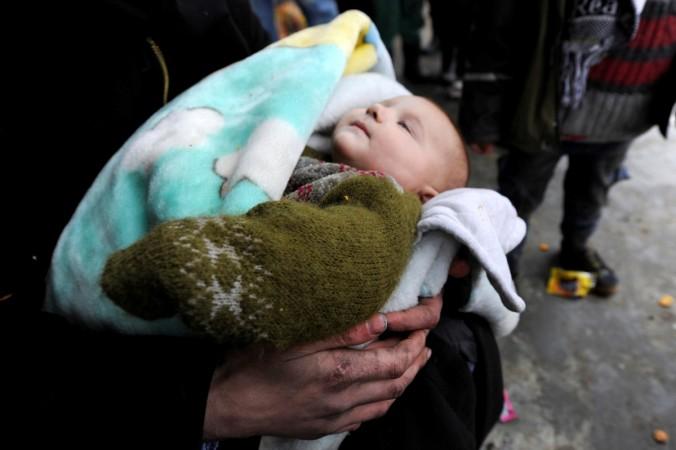
The controversial "three-parent" baby technique got clearance from an independent panel of experts earlier this week, paving way for the treatment to be introduced in the United Kingdom by next year.
The panel cleared the left-over safety hurdles and recommended careful adoption of mitochondrial replacement therapy (MRT) for curbing inherited ailments. UK's Human Fertilisation and Embryology Authority (HFEA) was told by scientists on November 30 that this therapy is finally ready for limited clinical testing after two decades of research.
On December 15, the HFEA will come up with its decision regarding the clinical trials. The procedure will commence on a patient-by-patient basis in March or April next year if the response is positive, a spokesperson said.
"We'll be ready, I hope, to press the button if we get the green light," Mary Herbert, a reproductive biologist who is part of the team at Newcastle University, UK, seeking to offer the treatment to women, stated.
The "three-parent" baby treatment was legalised by the UK government in 2015 but HFEA asked them to conduct more research on the technique before carrying out clinical trials. This treatment has been carried out in Mexico and Ukraine, and they have no laws to prevent this treatment.
While the first three-parent baby was born in Mexico in September this year, some British researchers said that this makes the approval of the technique in the UK even more important.
This treatment aims at providing a healthy baby to parents who suffer from a rare disorder. The defective mitochondria of the mother are replaced with the healthy ones, which are taken from the eggs of another woman. The baby thus born has the DNA of the parents and a donor.
The mitochondria of a person comprises around 0.1percent of DNA, which is always inherited from the mother. This DNA differs from the one present in the cell nucleus that contains the majority of a person's genes. Any defect in the mitochondrial DNA (mtDNA) can result in grave health conditions that can adversely impact internal organs, mental ability, vision, muscles and growth of a person.
Around 6,500 babies get affected worldwide by defects in the maternal mitochondrial DNA.
With the help of MRT, these fatal conditions can be prevented by replacing the defective mitochondria with the donor's healthy one.














